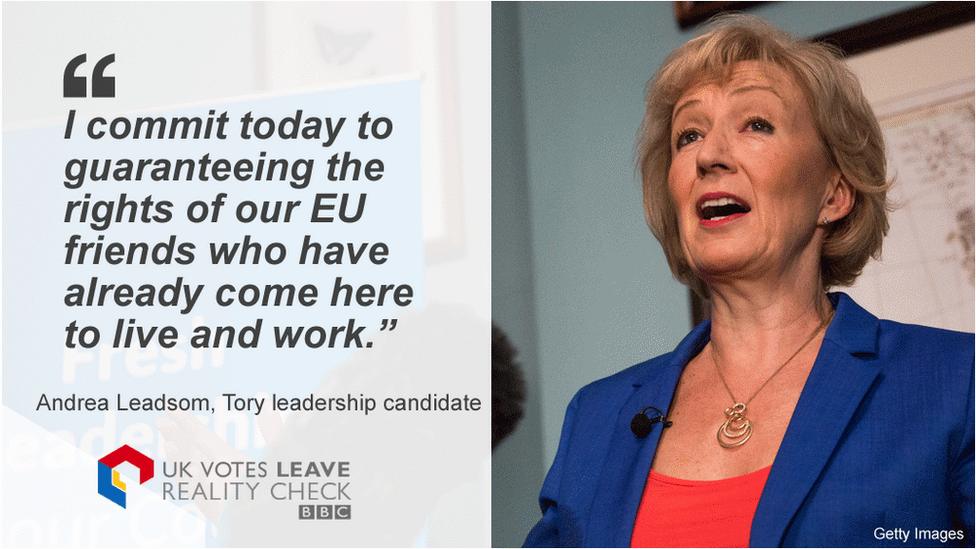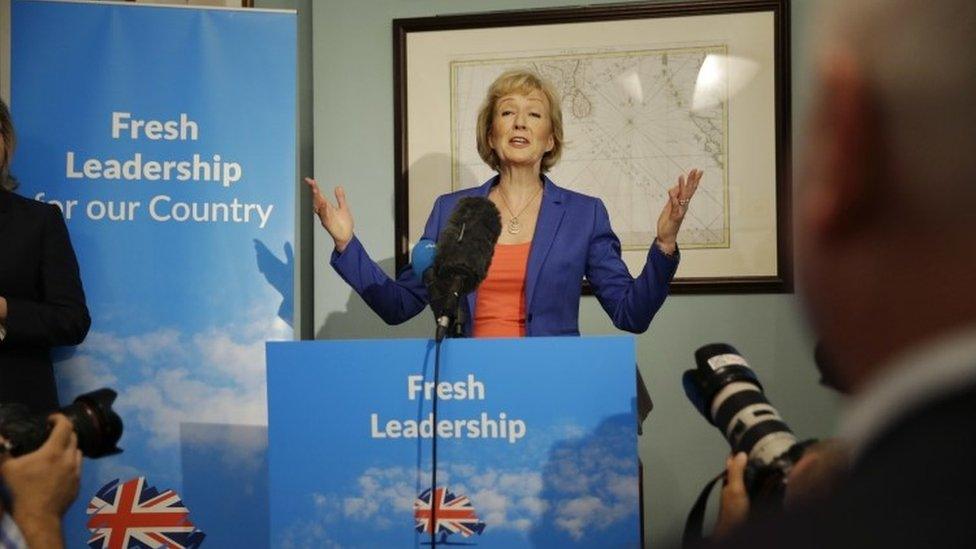Reality Check: What happens to Brits living abroad?
- Published

The claim: Some candidates for the Conservative Party leadership have suggested that UK nationals living in the EU, and indeed EU nationals living in the UK, will automatically be able to carry on as they are after Britain leaves the EU.
Reality Check verdict: Although politicians have so far indicated that this is likely to be the case, this issue, together with many others, is likely to be discussed as part of the UK exit negotiations.
The legal status of UK nationals living in the EU and of the EU citizens living in the UK is unlikely to change for some time.
The UK is still a member of the European Union and will continue to be a member until either an exit deal is agreed or two years after Article 50 has been triggered, whichever is sooner.
The exact detail of what happens when the UK does leave the EU will be determined as part of that exit deal, Are politicians right to be so confident that people can stay where they are?
Some lawyers and politicians argued during the referendum campaign that the Vienna Convention, an international agreement, would guarantee that Britons living abroad would not be forced to leave their EU countries of residence and that the same would apply to the three million EU citizens currently living in the UK.
The convention says that the rights of "parties" acquired under a treaty are not lost just because the treaty ends. In other words, those who moved from the UK to the EU as well as from the EU to the UK under EU freedom of movement, would not be forced to leave if the EU treaties no longer applied in the UK.
However, some lawyers point out that the "parties" in the Vienna Convention are states rather than people, implying that it is not clear if individuals could invoke it before a national court, as they would have to in an immigration dispute.
In addition, two EU countries, France and Romania, have not signed the convention.
It's not all down to the Vienna Convention. Immigration lawyers distinguish between people who have a permanent right to reside and those who have not applied for permanent residency yet. The UK's own immigration laws, as well as those of other EU countries, would give more protection to those with permanent residency because permanent residence has a similar legal status to Indefinite Leave to Remain.
The European Court of Human Rights - not an EU but an international court - would also protect the rights of the individuals who live in another EU country. The European Convention on Human Rights, external protects an individual's right to private and family life, which would be eroded if people who have a job, property, children at school etc. were to be returned to their country of origin.
In any case, the consequences of returning so many people from the EU to the UK and vice versa would be extremely costly and complicated and so far no Conservative Party leadership contender or EU leader has suggested deportations.
Andrea Leadsom quoted the Vienna Convention as the basis for her pledge to guarantee the rights of EU citizens who already live and work in the UK.
Both Stephen Crabb and Michael Gove made similar pledges, with Mr Crabb pointing out he would expect the same for Britons in the EU.
Liam Fox also said he hoped there would be a mutual agreement that would allow UK nationals in the EU and EU nationals in the UK to stay where they are.
Theresa May said that the position of British citizens in the EU and those from the EU would be an issue in the UK-EU negotiations.
An urgent question was asked in the House of Commons on the subject on Monday. Minister for Immigration James Brokenshire suggested that any premature assurances for EU citizens in the UK could have "unintended consequences" and undermine the best possible outcome for British citizens in negotiations with the EU.
This position was met by fierce criticism in the House of Commons. MPs argued that it was within the current government's power to make decisions on the future rights and status of EU citizens in the UK and that it was the duty of the government to act on this issue now.



- Published5 July 2016

- Published22 February 2016
